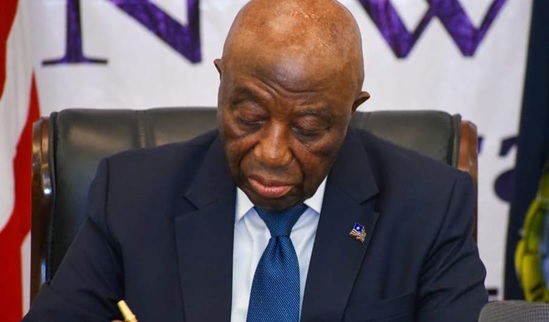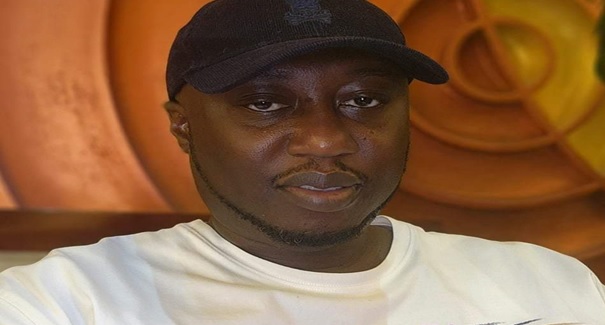Analysis By Wondah L. Jah
When the 177th National Day Orator last July unleashed a pepper-soaked slap on the faces of United States diplomats, leading the Americans to grubbing their way out of the Centennial Pavilion in protest to such “divisive statement”, nearly all officials of the Government in attendance gave the spectacle standing ovation. President Boakai was himself chuckling rather mutedly but delightfully. Apparently, the Boakai administration, or at least most members of the kitchen cabinet, hold the opinion that the young orator treaded where angels had feared. Deep in their souls, the United States’ “diplomacy of extreme conditionalities” runs awhile to their favorites, the East—Russian and China—which more often than not are less conditional, and pursue cash diplomacy.
Long before the July 26 Independence Day oration saga, specifically during the 2023 campaign and transitional periods, influential intellectuals claiming familiarity with international powerplay and geopolitics, heatedly fussed over which way to lean more heavily diplomatically – the West or the East – and many think the United States and Europe would first be coaxed with war and economic crimes courts moves but the real deal for campaign promise delivery should count more on the East.
The coax worked. Unity Party loyalists managed to pivot with the war crimes trap, the Americans became delighted and the evidence came when topnotch State Department officials and others graced the January 23 inauguration of Boakai, followed by private visits to the newly coronated president’s homes and Boakai multiple visits to the US in the first three months of his incumbency.
As their custom is for Liberia and other unlike third world countries, the United States would to rush with caressing the new administration with millions of offshore monies let along billions for whatever reason. Its checklists and benchmarks as administered by the Breton Woods would have to be take shape and be possibly exhausted before any serious economic engagement can begin.
The new regime which shot its way to power through honeyed pledges, fiery demonization of its predecessor over political failure and incompetence, and with much ego of its own has little or no time to spare. Thus, the flirtation of other alternative powers and sources presented a plausible option and the 177th Orator was a perfect trigger to the test the ground. Even weeks, before the US-demonization oration was made to the apparent delight of the new government, the can of words as already brought to the fore by an assistant minister at the Ministry of Internal Affairs who contended he had great relations, including training with the Russians who he was prepared to use to assassinate a critical opposition lawmaker.
From such a clear and subtle evolutionary convolution of diplomatic seesaw in the last eight months, something that has become the centerpiece of the Boakai administration’s rule of engagement, all sensible conclusions point to giant enroll of the East into mainstream Boakai political, diplomatic and economic playbook in the coming years.
This aligns with that the Unity Party Standard-bearer boast of during the 2023 when he said quite unequivocally that for the sake of ensuring his dream for leadership and development of Liberia, he was determined to ‘dine with the devi”.
That he has begun dining and wining with the devil is no secret in so far as the President reported western objections to make the last trip to Indonesian, mainly communist China. It was said that prior to his departure to Asia, traditional partners walked to the president and warned him and delegation from making the trip; but he pleaded to go anyhow, promising not to commit to any serious agreement(s).
Echoes from the recently Asian trip as provided by insiders suggest that the delegation flatly ignored all warnings and have sold out to China and Russia, who various corporate giants have reach landmark agreements, some including “resource-swap” that clearly have the potential to edge out the United States business and economic interest.
Gradually and steadily, evidence continues to mount about Boakai’s strategy to drive Americans out of Liberia is evolving. Those who are close to the Liberian leader, and have milked from this over 45 years of public service ideological perspective, say Boakai has long had the view that the United States is incessantly unpassionate and carefree about its relations towards Liberia and it is this attitude that largely accounts for the country’s 177 years of backwardness.
Boakai’s longtime protégés have often spoken about his arguments amongst peers and other leaders he worked with, including Madam Ellen Johnson Sirleaf whom he served as 12-year vice president, that if Liberia does not ideologically and diplomatically liberate itself and migrate to diametrically opposite governance and development mode, the much-anticipated transformation of the nation is deadlock.
With power squarely in hand, he is not contradicting the perspectives about national governance and growth he so long had confided to his associates. Boldy, he gravitating and aligning with authoritarian leaders in pursuit of absolute power.
Liberians appear divided on his leadership option. Others think his approach risks steering Liberia toward two anti-democratic nations, Russia and China, both of which do not advocate for democracy or the freedom of the masses, and are known for financing brutal regimes worldwide. There is no gainsaying about the fact that a neo-Cold War is raging, and the Liberian leader has taken a stand already. Observers suggest that the new Liberian leader pursuit of the East is in part about his fears for accountability since China and Russia care little for freedom and good governance.
Already an American political commentator, Michael Rubin, has raised alarms about the “Growing Influence of Russia in Africa,” questioning whether Liberia will become the next target of Russian influence, especially as concerns heighten over the potential expansion of the Wagner Group—a private military company with ties to the Kremlin—along the Atlantic coast, which could affect both Liberia and neighboring Sierra Leone.
Rubin notes that historically, U.S. adversaries have leveraged moments of American political distraction, particularly during election seasons, believing they can pursue aggressive foreign policies with minimal resistance. With President Biden opting out of re-election, he stands at a critical juncture—an opportunity to reshape his legacy and reinforce America’s strategic interests on the African continent.
The Biden administration has faced scrutiny for its handling of Africa, especially regarding the Horn of Africa, which has seen a strategic shift towards China, and the Sahel region increasingly falling under Russian influence. Former U.S. presidents have left distinct legacies in Africa; George W. Bush is remembered for his fight against HIV, Barack Obama for his controversial drone strikes, and Donald Trump for his disparaging comments about African nations. It remains to be seen what Biden’s legacy will be, but the current trajectory raises concerns about the U.S.’s diminishing role.
Rubin emphasizes the urgency for Washington to act, arguing that regardless of the willingness of Liberia’s and Sierra Leone’s leaders, the time has come for the U.S. to counter the Wagner Group’s ambitions before they gain a more significant foothold in the region. “As the world watches closely, the question remains: will the U.S. take decisive action to thwart Russian influence, or will it allow another African nation to slip into the hands of foreign powers? The clarity of the Biden administration’s strategy in Africa could define not only his presidency but also the future of U.S. relations with the continent.”
Liberian-American Relationship
The relationship between Liberia and the United States is unique and historically significant. Key points include:
Founding of Liberia: Established in the early 19th century as a settlement for freed American slaves, Liberia was founded by the American Colonization Society (ACS) in 1822 and became a republic in 1847. This connection is a foundational aspect of the relationship between the two nations.
Shared Values: Both countries share democratic ideals, such as a commitment to democracy, individual liberties, and the rule of law. Liberia’s constitution reflects many principles found in the U.S. Constitution.
Political and Economic Ties: The U.S. has historically been involved in Liberia’s political and economic affairs, including support during the civil wars in the 1990s and early 2000s, as well as economic assistance for rebuilding efforts.
Cultural Links: There are strong cultural ties between the two nations, stemming from the migration of freed slaves to Liberia, leading to similarities in language, customs, and social structures.
Diplomatic Relations: The U.S. was one of the first countries to recognize Liberia’s independence and has maintained diplomatic relations since. The U.S. embassy in Monrovia is a testament to this ongoing partnership.
Development Assistance: The U.S. provides various forms of aid to Liberia, including humanitarian assistance, health programs (like combating Ebola), and support for governance and economic development.
Overall, the relationship between Liberia and the United States is characterized by historical ties, shared values, and ongoing cooperation in various areas.
China-Africa Relations
China-Africa relations have evolved significantly over the past few decades, marked by increased political, economic, and cultural exchanges. Both China and Russia tend not to support nations that do not align with their policies, raising the question: Are China and Russia the “devils” Boakai is willing to engage with to actualize his policies? This presents a significant gamble for the Boakai administration.
Political observers in Liberia suggest that Boakai’s actions against the Americans are being driven by senior members of the Unity Party, some of whom were educated in the West, particularly in the U.S. They appear to be using various tactics to push an anti-American agenda, subtly employing orators to distance Liberia from the U.S.
Boakai’s government is marred by corruption, and in the seven months since taking office, he has attempted to sway his supporters towards China’s Belt and Road Initiative (BRI). Many African nations are involved in this initiative, which aims to enhance global trade and stimulate economic growth through infrastructure development. However, these investments often come with fewer political conditions compared to Western investments, making them appealing to many African nations. Boakai seems to be pursuing this route, risking democracy for corruption and autocracy.
China, in particular, engages in active diplomacy with African states, emphasizing mutual respect and non-interference in domestic affairs. It supports African representation in internatio7nal organizations, including the United Nations. Additionally, China provides development aid to African countries in the form of loans, grants, and technical assistance for various projects, including healthcare and agriculture.
While the relationship with China has potential benefits, it also carries challenges and criticisms, including concerns about debt dependency, environmental impacts of Chinese projects, and the quality of labor practices. The growing influence of China in Africa raises concerns in the U.S. regarding its strategic interests in the region. Liberia’s pivot towards China could lead to tensions in its relationship with the U.S., particularly if it appears to be leaning too far towards China or Russia.
In conclusion, while Liberia may explore closer ties with China or even Russia, it must do so cautiously, considering its historical connection to the U.S. and the potential implications for its domestic and international standing. A balanced approach will be crucial to ensure that Liberia can leverage the benefits of multiple partnerships without jeopardizing its long-standing relationship with the United States.







